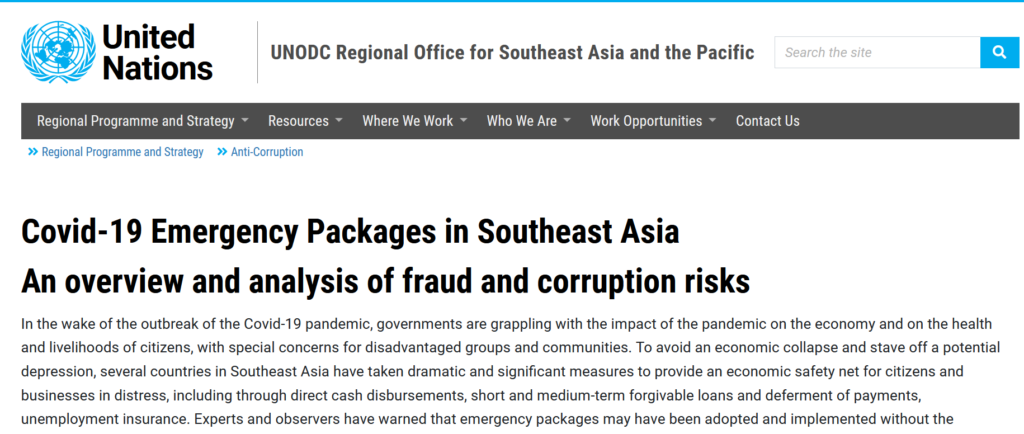In the wake of the outbreak of the Covid-19 pandemic, governments are grappling with the impact of the pandemic on the economy and on the health and livelihoods of citizens, with special concerns for disadvantaged groups and communities. To avoid an economic collapse and stave off a potential depression, several countries in Southeast Asia have taken dramatic and significant measures to provide an economic safety net for citizens and businesses in distress, including through direct cash disbursements, short and medium-term forgivable loans and deferment of payments, unemployment insurance. Experts and observers have warned that emergency packages may have been adopted and implemented without the necessary oversight procedures and mechanisms, which increases the risks of misuse, fraud and corruption in the implementation of the packages.
This analysis looks at the Covid-19 emergency support packages implemented by the governments in Southeast Asia and their associated risks of misuse through fraud and corruption. The first section of the analysis describes the measures adopted under the emergency packages in Southeast Asia, the targeted beneficiary groups, the legal basis for the packages, and the implementing agencies. The second section contains a non-exhaustive description of main legal frameworks introduced in response to the Covid-19 crisis. The third section describes the institutional oversight framework monitoring the disbursement of the funds and the implementation of the support packages. The fourth section analyses the risks of misuse, fraud and corruption in the disbursement of the emergency packages.
The data is based on a UNODC questionnaire compiled by experts and practitioners in Southeast Asia during the first two weeks of May 2020 as well as on desk-based research of emergency laws, Covid-19 regulations and media reactions. As governments are revising their policies and institutional arrangements on an on-going basis to respond to the Covid-19 crisis, some of the information may no longer be up-to-date at the time of publishing this article. The study covers Cambodia, Indonesia, Lao PDR, Malaysia, Myanmar, Philippines, Singapore, Thailand, Timor-Leste and Viet Nam.
